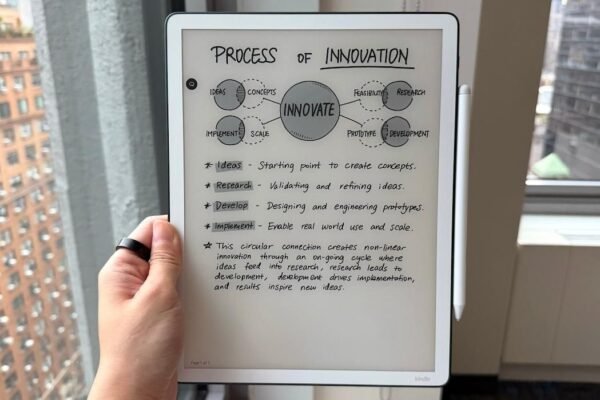SpaceX Fuel Leak Delays Axiom-4 Mission Launch Again
SpaceX Fuel Leak Causes Another Delay for Axiom-4 Mission Launch
Space travel is never easy. It takes years of planning, cutting-edge technology, and perfect timing to get a rocket off the ground. But sometimes, even with the best teams and tech, things don’t go as planned. That’s exactly what’s happening with the Axiom-4 mission, a private spaceflight that’s been delayed once again due to a fuel leak in the SpaceX Falcon 9 rocket.
Let’s break down what happened, why it matters, and what to expect next from this ambitious mission.
What’s the Axiom-4 Mission All About?
If you’re not familiar, Axiom-4—also written as Ax-4—is the fourth mission organized by Axiom Space. It’s one of several private spaceflights headed to the International Space Station (ISS). What makes these missions special is that they aren’t led by NASA astronauts. Instead, Axiom works with SpaceX to fly private astronauts into low Earth orbit.
Think of it this way: NASA is like the government’s bus service to space. Axiom is more like a luxury charter—only a lot more high-tech and with a hefty price tag.
Who’s Going on Axiom-4?
This mission is particularly exciting because of its international crew, which includes:
- Commander Michael López-Alegría: A former NASA astronaut leading the mission.
- Walter Villadei: A colonel from Italy’s air force.
- Marcus Wandt: A reserve astronaut from Sweden.
- Alper Gezeravcı: The first Turkish astronaut to head to space.
This mission represents a major milestone, especially for Turkey, as Gezeravcı will be the country’s first representative in space. It’s a proud moment that’s sadly been put on pause—again.
Why Was the Launch Delayed?
The Axiom-4 launch delay is due to a fuel leak in the SpaceX Falcon 9 rocket. Yes, even rockets have their hiccups. During routine checks before liftoff, engineers detected a leak in the rocket’s oxidizer system, specifically in the second stage. This section is crucial because it helps send the Crew Dragon spacecraft into orbit after the rocket lifts off.
This isn’t something that can be ignored. A leak in the oxidizer system, which handles chemicals that help burn rocket fuel, could be dangerous. So, as frustrating as delays may be, safety always comes first in space travel.
How Often Do These Delays Happen?
More often than you’d think. Space launches have always had a history of last-minute delays. Whether it’s bad weather, technical glitches, or—like in this case—fuel issues, launching a rocket is a delicate balancing act.
I remember once waiting eagerly for a shuttle launch with my family at Cape Canaveral. We had binoculars, snacks, and tons of excitement. But an engine valve problem delayed the launch for four days. Disappointing? Sure. But seeing the rocket finally soar into the sky days later made it all worthwhile. It’s all part of the journey.
New Launch Date: Still Up in the Air
Initially scheduled for January 17, 2024, then pushed to January 19, the Axiom-4 launch is now on pause until further notice. NASA and SpaceX are keeping a close eye on the situation. They want to ensure that everything is 100% in working order before giving the green light.
A new launch date has not yet been announced, but officials say it will be released after they finish troubleshooting and confirm the issue has been fixed for good.
What Happens Now?
Until the fuel leak is fully resolved, the Crew Dragon spacecraft—named “Freedom”—will remain grounded at NASA’s Kennedy Space Center in Florida. Meanwhile, technicians are replacing a pressure valve and checking the rocket thoroughly.
Both SpaceX and NASA prioritize safety above all else. After all, four lives are riding on this journey. While the delay is frustrating for the crew and space fans around the world, it’s a necessary step to avoid bigger problems later on.
Why This Mission Matters
The Ax-4 mission is more than just another rocket launch. It’s a symbol of how private companies are starting to play a bigger role in space exploration. With NASA focusing more on deep-space missions, companies like SpaceX and Axiom are stepping in to handle flights to the ISS.
This shift could mean more opportunities, more innovation, and maybe someday, regular people like you and me heading to orbit—well, at least those with deep pockets for now.
Missions Like This Offer:
- Opportunities for international participation in space programs.
- Scientific research done by non-government astronauts aboard the ISS.
- Inspiration for future generations interested in science and technology.
It’s not just about launching a rocket. It’s about advancing humanity’s reach beyond Earth’s atmosphere.
Looking Ahead
So, what can we expect moving forward? SpaceX and Axiom are working hard to resolve the issue quickly and safely. Once the valve is replaced and all final checks are completed, a new launch date will be shared.
If you’re a space enthusiast—or just someone curious about what lies beyond the clouds—your patience will soon pay off. The Ax-4 mission promises to be an inspiring step forward for global collaboration in space.
In the Meantime, Stay Tuned:
- Follow NASA and SpaceX on social media for updates.
- Keep an eye on official livestreams once a new launch date is announced.
- Support space education—talk to your kids or students about these missions!
Final Thoughts
Delays in spaceflight are not setbacks—they’re reminders of just how complex and incredible modern space travel really is. And while it’s easy to feel disappointed when a countdown stops at T-minus 10, it helps to remember that behind every pause is a team of thousands working to make space journeys as safe as possible.
As we wait for the new Axiom-4 launch date, one thing’s for sure: the stars aren’t going anywhere. And when “Freedom” finally lifts off, it will carry not just astronauts, but hopes, dreams, and the promise of what our species can achieve—together.
So, are you ready for liftoff? Stay tuned, because this journey is just beginning.
Keywords: SpaceX, Axiom-4 mission, Axiom Space, fuel leak, SpaceX rocket delay, Falcon 9 rocket, private spaceflight, NASA launch delay, Crew Dragon Freedom, international astronauts












